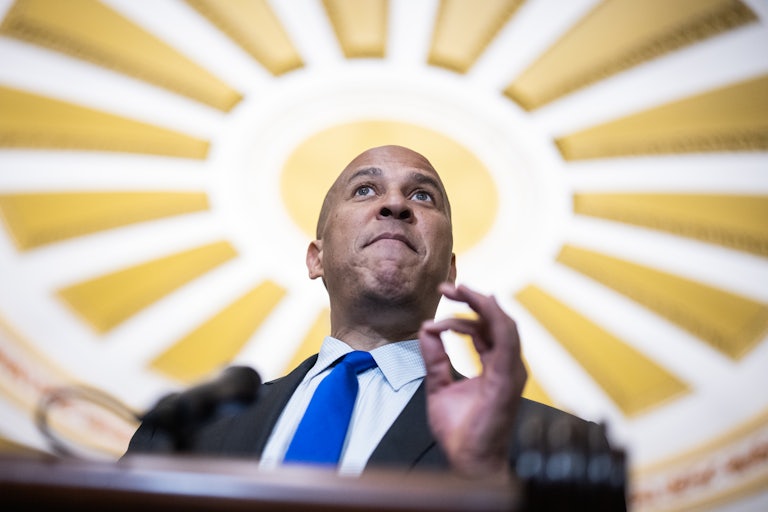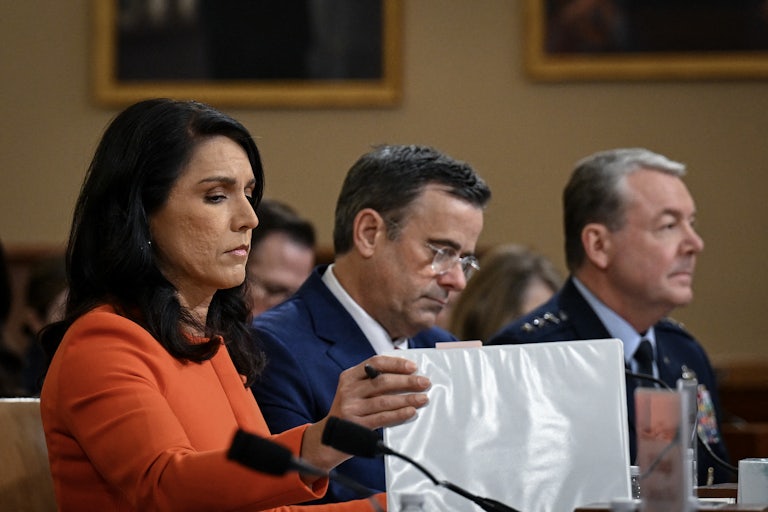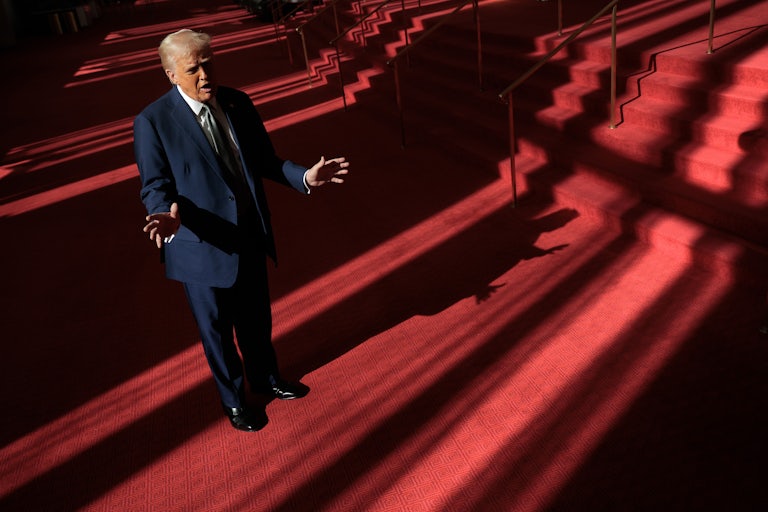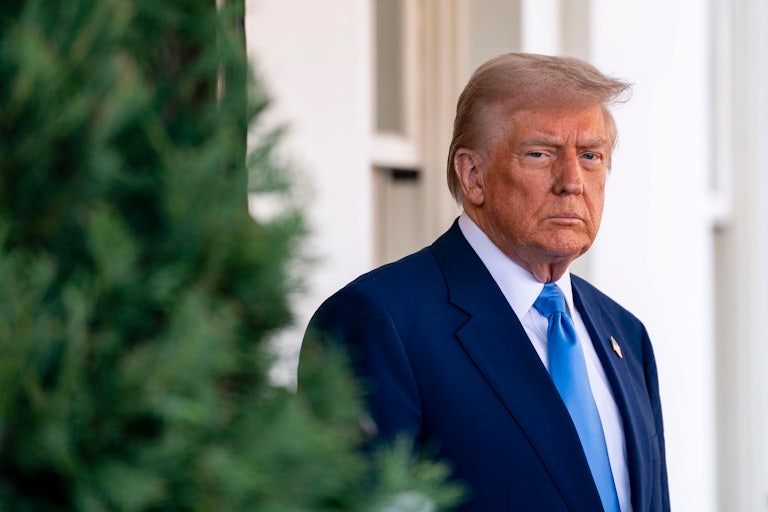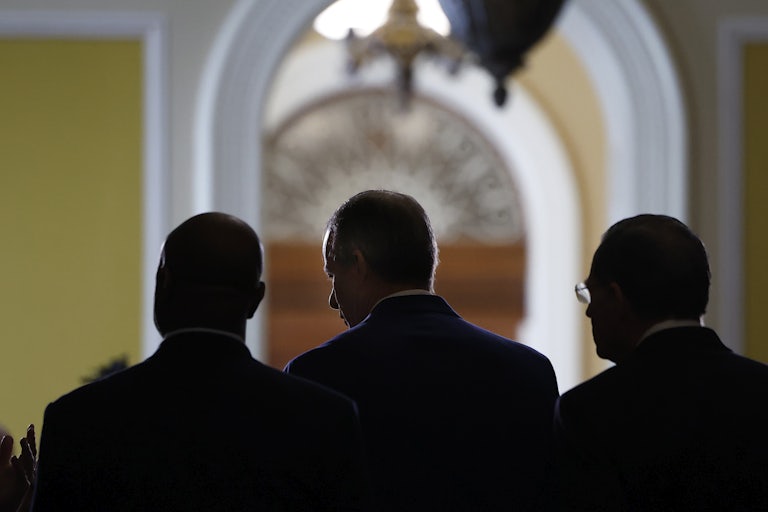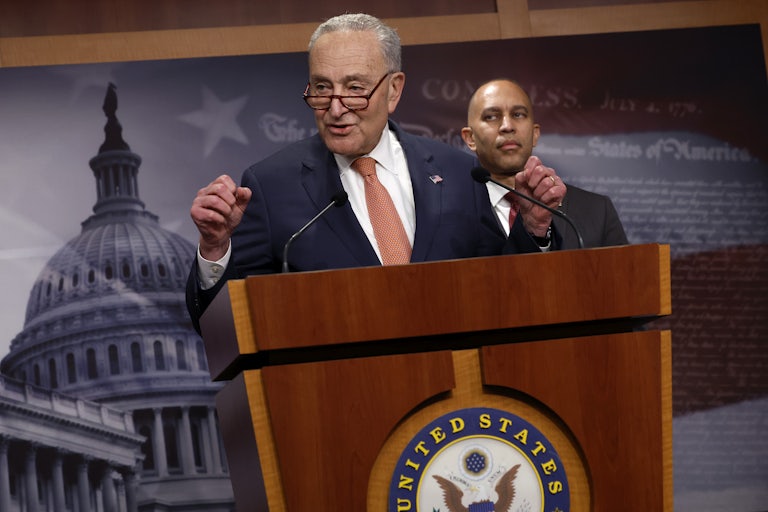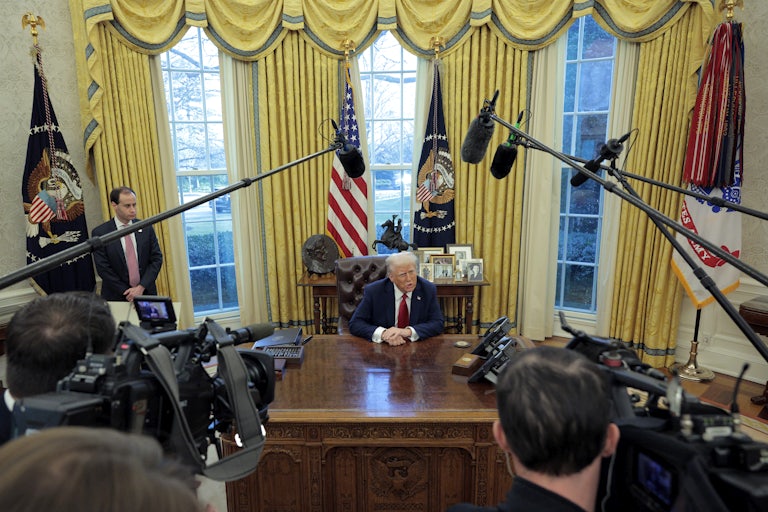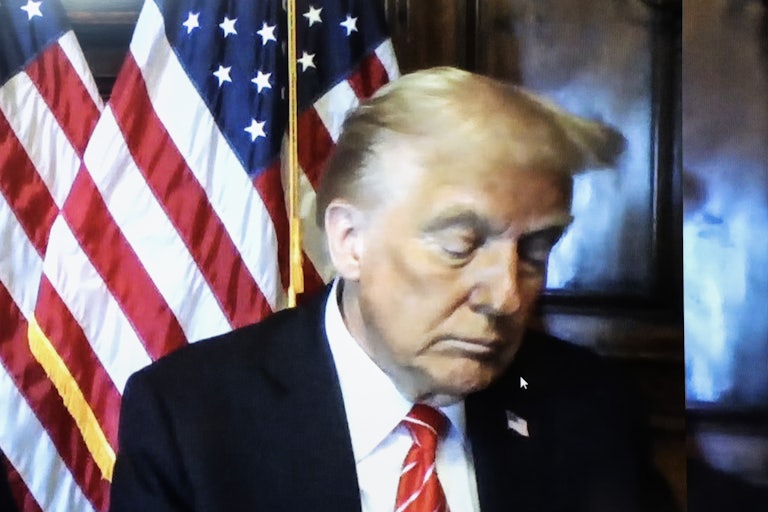Gretchen Whitmer Fell Into Trump’s Tariff Trap
The dumbest thing Democrats could do right now is lend even a scintilla of credence to a bad president’s worst idea.
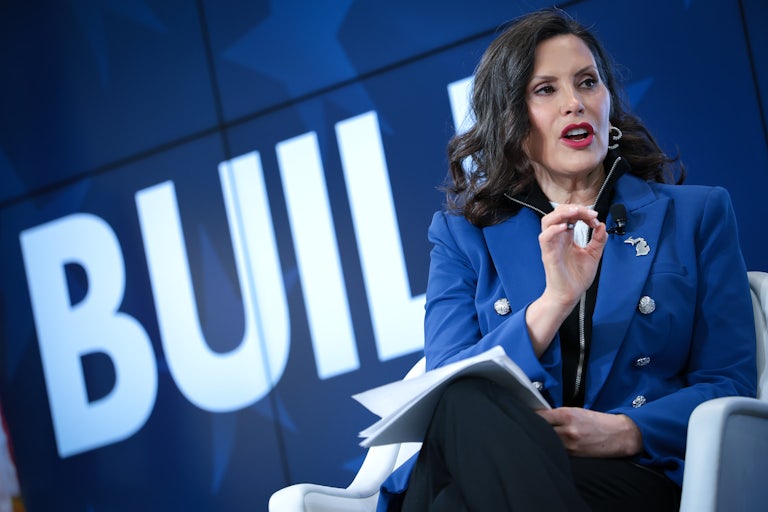
Gretchen Whitmer came to Washington this week and, in a high-profile appearance, took herself out of the running for the 2028 Democratic Party presidential nomination. Only, she probably doesn’t know she did that. (That’s OK, she just read it here first.)
The exact moment where things went awry for the Michigan governor came when she attempted to defend the very thing that had raised the specter of a recession that will wreck millions of Americans’ livelihoods: Trump’s insane tariffs scheme, which caused such unholy havoc over the last few days that he was forced to issue a partial suspension of hostilities on Wednesday afternoon, pausing the implementation of escalated tariffs on most nations for 90 days (while retaining 10 percent across-the-board tariffs and upping his trade-war ante against China to an insane 125 percent).
It was against this backdrop that Whitmer breezed in from cloud-cuckoo-land to lend Trump a bipartisan shoulder to cry on. “I understand the motivation behind the tariffs, and I can tell you, here’s where President Trump and I do agree. We do need to make more stuff in America—more cars and chips, more steel and ships. We do need fair trade,” she said, in a speech at the Council of Foreign Relations. “We should be able to celebrate good policy no matter where it comes from, and also criticize bad policy no matter where it comes from.” She followed up this performance by allowing herself to get baited into participating in an Oval Office photo op, where she stood by cringing as Donald Trump signed an executive order asking the Justice Department to investigate two former White House aides for treason.
And that’s a wrap on Whitmer 2028.
Am I being unfair here? For sure, Whitmer would probably complain that I’m leaving out the fact that she criticized Trump’s tariffs as a “triple whammy: higher costs, fewer jobs and more uncertainty.” But I’m not leaving that out at all. I am, in fact, including it to better highlight the exact moment she should have stopped talking—because the rest of what she said was opinion-polling poison. Everything Trump touches dies, and tariffs are no different. Serious politicians should not be spending their time trying to co-sign his ideas. Voters will have nothing nice to say about tariffs come election season.
Whitmer is somewhat cross-pressured, admittedly: The labor leaders who have a vested interest in her state’s governance have some unfortunately mixed-to-positive feelings about Trump’s tariffs—even as members of their unions lose their jobs as a result. It’s tough that this is her burden to bear, but I recommend she bear it as the governor of Michigan and not as a Democratic presidential aspirant. And for the sake of those aspirants, she should bear it very quietly, so as not to trouble the news cycle with the kind of talk that might sabotage their chances of winning.
It must be said, though, that much of what Whitmer has to say about tariffs makes me question whether she’s a reliable voice on the topic at all. She claims to understand Trump’s “motivation” (it’s actually more like a “fixation”). But if she did, then she wouldn’t have anything complimentary to say about it. Trump believes that tariffs should replace the income tax, which as Tim Noah demonstrates at length is a notion both ahistorical and innumerate. The Trump administration believes that the federal workforce, as a pool of laborers, would be more productive if they were working for minimum wage at the Triangle Shirtwaist Factory. The only way to “understand Trump’s motivation” is to see the multiple layers of stupidity at work in his seething brain.
Whitmer is right to want more stuff made in America, but she’s wrong to offer Trump—who is driven by mental infirmity and the need to dominate other nations—any kind of concession, especially when his plan won’t work. We’re not going to be commanding the industries of the future by simultaneously imposing recession-inducing tariffs and cutting off the money for research “into new materials for jet engines, propulsion systems, large-scale information networks, robotics, superconductors, and space and satellite communications, as well as cancer” cures, as Trump did this week. This is why you cannot, actually, “celebrate good policy no matter where it comes from”—all of Trump’s policies in combination make the economy worse and the future darker.
There might have been a time when the mastery of technocratic wonkery was effective politics. It was, at least, in vogue for a while. But the nation has been drop-kicked into a new information environment where it is decidedly bad politics to devote yourself to a complicated explanation of how tariffs can create positive sum trade outcomes that might blah blah blah—I feel bored even typing this! In 2025, if you are explaining, you are losing. You should be taking the cheapest of shots at a bad and infirm man wrecking the country, not leading a graduate seminar. If you want to know how it goes when a presidential candidate talks about being “for something before they were against it” and pitches themselves as the person who will take a bad president’s terrible idea and make it work with the right dose of managerial panache, google “John Kerry.”
Look, I know that we’ve employed tariffs from time to time in perfectly sane ways. I know that they should be part of a good steward’s economic tool kit. But Trump’s actions over the past few weeks have indelibly tainted them. In upcoming elections, tariffs are going to poll about as well as feline AIDS or getting punched in the throat. So there’s only one way for Democrats with national aspirations to characterize them for the next few years: as a recipe for economic wreckage that the entire MAGA-pilled Republican Party supports. One day, tariffs may achieve redemption, but it won’t be on the 2028 campaign trail—at least not if you want to stay on it.
This article first appeared in Power Mad, a weekly TNR newsletter authored by deputy editor Jason Linkins. Sign up here.
